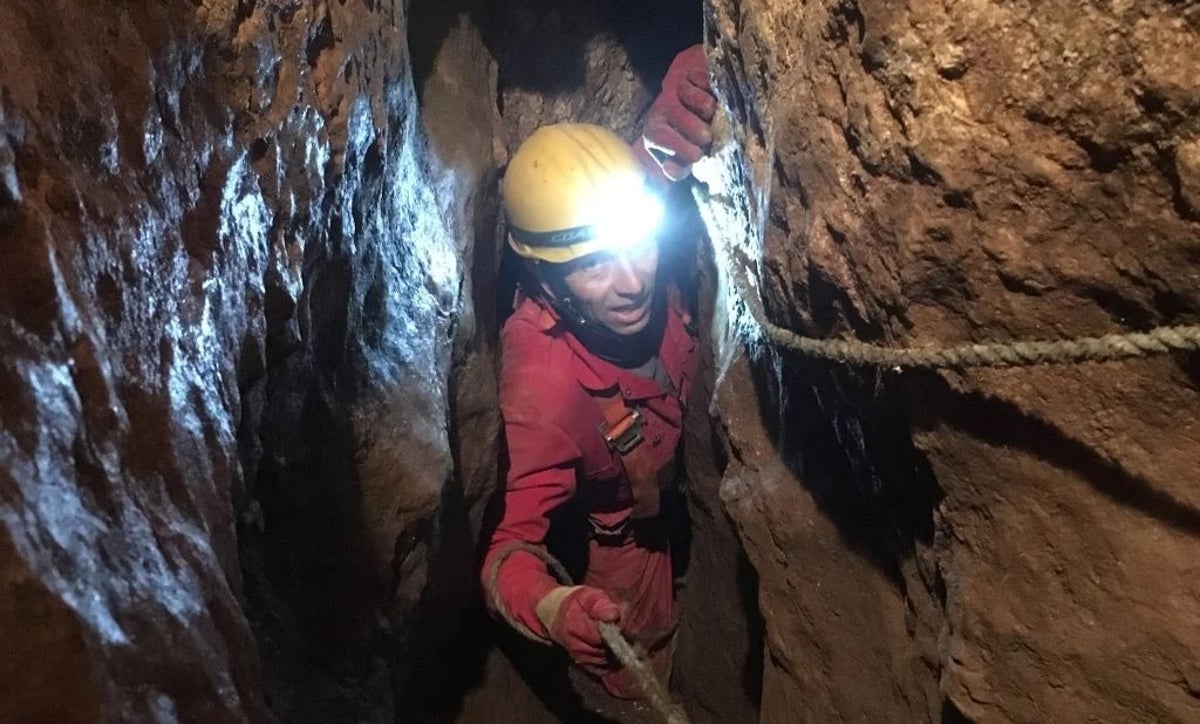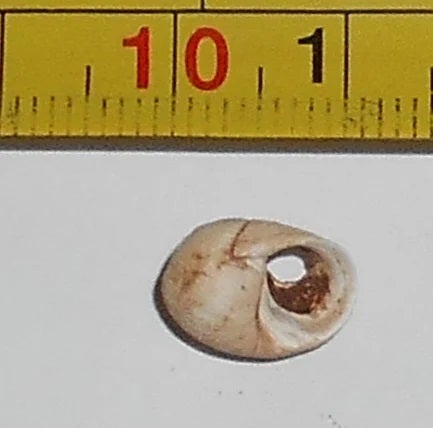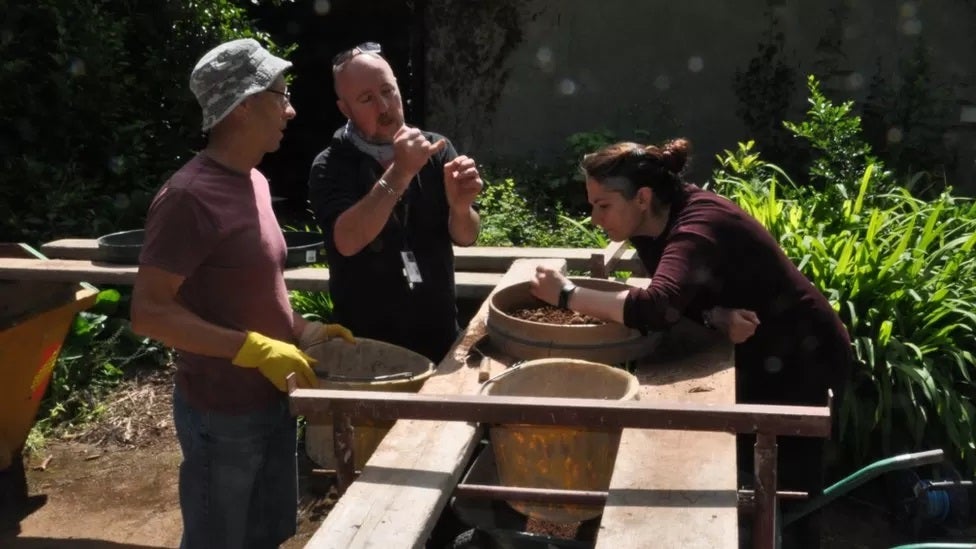
An archeologist from Cumbria has discovered the remains of some of northern Britain’s earliest humans.
Found at Heaning Wood Bone Cave in Great Urswick, south Cumbria, the cave has been confirmed as a burial site by experts from an international team from the University of Central Lancashire.
Local archeologist Martin Stables has been working at the site since 2016, with academic analysts brought into interpret the evidence.
Mr Stables has previously discovered human and animal bone, stone tools, and prehistoric pottery at the site.
He told reporters: “After six years digging it’s all ended up in a place I never expected it to get to.”

Dr Rick Peterson, who led the academic team for the project, said: “This is a fantastic discovery. We’ve been delighted to confirm Martin’s unbelievable find dates back around 11,000 years ago and gives us clear evidence of Mesolithic burials in the north.
“This is particularly exciting as these are some of the earliest dates for human activity in Britain after the end of the last Ice Age.”
Studies involving researchers from the University of Nevada, Reno, along with academics from Pennsylvania State University, were able to carbon date several of the remains found at the site.
Dr Peterson continued: “Cave burials like this are well known from some periods of British prehistory and the Heaning Wood burials are an important addition to our knowledge of funeral practices.

Previous excavations at the site in the 1950s, and existing archeological work by Liverpool John Moores University has dated some material from the site to the early Bronze Age, around 4,000 years ago.
Before this recent discovery, the earliest ‘northerner’ excavated was a 10,000-year-old burial from the nearby Kent’s Bank Cavern, Morecambe Bay discovered in 2013.
Dr Peterson said: “To put it in perspective, the last Ice Age lasted until about 11,600 years ago. After that period, the global temperature warmed rapidly over about 100 years to give us the climate we’ve got today.
“These people are just about as early as we could expect them to be - the pioneers reoccupying the land after the Ice Age.”
Mr Stables, from Ulveston in Cumbria, told reporters: “I never expected anything like the Early Mesolithic connection in my wildest dreams.
“I can’t wait to hear all the final results, it’s staggering so far, difficult to imagine what it would have been like around here over 11,000 years ago.”
Further research at the site is set to continue to establish what happened to the individuals discovered, their origins and if they were related.







